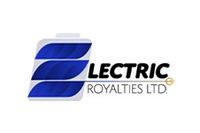EV Makers Join Forces to "Drive Sustainability" in Cobalt Mining
A group of carmakers will set up a Raw Materials Observatory to assess the risks posed by crucial elements such as cobalt in the automotive sector.
A group of 10 carmakers has joined forces to identify and address ethical issues in raw materials sourcing, including the supply of cobalt for electric car batteries.
The alliance, called Drive Sustainability, will set up a Raw Materials Observatory to assess the risks posed in the auto sector by crucial materials like cobalt. It will unveil its action plan at the beginning of next year.
“[The initiative] will allow [us] to identify the most impactful activities to pursue in order to address the human, ethical and environmental issues within the supply chain,” said Stefan Crets, executive director of the CSR Europe business network and facilitator of Drive Sustainability.
Group members include Volkswagen (FWB:VOW), Toyota Motor Europe (TSE:7203), Ford (NYSE:F), Daimler (FWB:DAI), BMW (ETR:BMW), Honda (TSE:7267), Jaguar Land Rover, Volvo Cars (HKEX:0175) and truck makers Scania and Volvo (STO:VOLV).
As the electric car revolution continues to unfold, demand for cobalt, a key element in the lithium-ion batteries used to power electric vehicles, is expected to soar.
But more than 50 percent of the world’s cobalt supply comes from the Democratic Republic of Congo, with about 20 percent extracted at artisanal operations, which carry a higher risk of child labor.
The Drive Sustainability initiative follows growing fears over human rights abuses, and comes as companies’ supply chains are falling under more scrutiny than ever before.
Earlier this month, Amnesty International released a report warning that electric car companies are “not doing enough” to tackle human right abuses in their cobalt supply chains. Among carmakers, the report shows that BMW has made the most improvements, while Renault (EPA:RNO) and Daimler “performed particularly badly.”
After the study was published, the London Metal Exchange also took action and launched an investigation over concerns that cobalt traded on its exchange could be linked to child labor.
“There are clear international guidelines for responsible sourcing and it is unacceptable that we have to name and shame companies before they act on them. Companies are running out of excuses and must take responsibility for what goes into their products,” Seema Joshi, head of business and human rights at Amnesty International, said after the LME news.
Don’t forget to follow us @INN_Resource for real-time news updates!
Securities Disclosure: I, Priscila Barrera, hold no direct investment interest in any company mentioned in this article.

